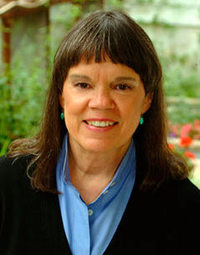A Quote by Pearl S. Buck
Some are kissing mothers and some are scolding mothers, but it is love just the same, and most mothers kiss and scold together.
Related Quotes
As important as the father is in the life of a child, even he must take second place to mother during the first three years of life.... Consequently, mothers actually have more to do with producing a predisposition toward homosexuality than fathers. Two kinds of mothers are particularly harmful - smother mothers and dominating mothers.
We need money to scale up the services that bring medicine to mothers. The United States government's doing that. There's a global fund that's providing money. mothers2mothers provides for mothers who come in who don't have education, who don't have support. mothers2mothers employs mothers with HIV, mothers who were patients recently in the very same facilities. We take those mothers who were patients who've had their babies, we bring them back, we train them, we pay them, to be health care professionals.
We're contemptuous of 'distracted' working mothers. We're contemptuous of 'selfish' rich mothers. We're contemptuous of mothers who have no choice but to work, but also of mothers who don't need to work and still fail to fulfill an impossible ideal of selfless motherhood. You don't have to look very hard to see the common denominator.
Both at-home and working mothers can overmeet their mothering responsibilities. In order to justify their jobs, working mothers can overnurture, overconnect with, and overschedule their children into activities and classes. Similarly, some at-home mothers,... can make at- home mothering into a bigger deal than it is, over stimulating, overeducating, and overwhelming their children with purposeful attention.
all daughters, even when most aggravated by their mothers, have a secret respect for them. They believe perhaps that they can do everything better than their mothers can, and many things they can do better, but they have not yet lived long enough to be sure how successfully they will meet the major emergencies of life, which lie, sometimes quite creditably, behind their mothers.
Most of us in the baby-boom generation were raised by full-time mothers. Even as recently as 14 years ago, 6 out of 10 mothers with babies were staying at home. Today that is totally reversed. Does that mean we love our children less than our mothers loved us? No, but it certainly causes a lot of guilt trips.
When our mothers are alive and healthy, they do extraordinary things... like the mothers of Plaza de Mayo, who marched in Argentinean plazas, defying the military junta dictatorship and demanding the whereabouts of their abducted children... or the Liberian mothers who faced down civil war armed only with T-shirts and courage.
Navajo infants get so attached to cradleboard that they cry to be tied into it. Kikuyu infants in Kenya get handed around several"mothers," all wives to one man. . . . Mothers in rural Guatemala keep their infants quiet, in dark huts. Middle-class American mothers talk a blue streak at them. Israeli kibbutz mothers give them over to a communal caretaker . . . Japanese mothers sleep with them. . . . All these tactics are compatible with normal health--physical and mental--and development in infancy. So one lesson for parents so far seems to be: Let a hundred flowers bloom.





































